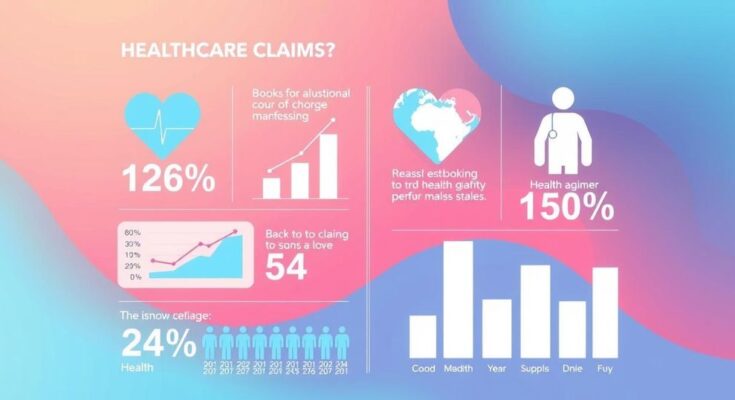Dr. Chinonso Egemba, known as Aproko Doctor, inaccurately stated that Nigeria has the second-highest number of people living with HIV. Current data places Nigeria fourth in HIV cases, with 2 million individuals affected. Moreover, the claim of 200,000 new infections annually is outdated, with 2023 data showing 75,000 new infections. The impact of U.S. funding cuts on HIV programs raises concerns about Nigeria’s healthcare future.
In a recent assessment of claims made by healthcare influencer Dr. Chinonso Egemba, known as Aproko Doctor, it has been determined that his assertion regarding Nigeria having the second-highest number of people living with HIV globally is erroneous. In fact, Nigeria ranks fourth, following South Africa, India, and Mozambique, with 2 million Nigerians estimated to be living with HIV in 2023 according to the United Nations’ HIV/AIDS programme.
Aproko Doctor further stated that 200,000 Nigerians are newly infected with HIV annually, a figure that is now a decade old. Recent data from 2023 indicates that new infections have more than halved, with UNAids estimating 75,000 new cases in Nigeria. These statistics reflect a significant improvement in the country’s health situation, having recorded considerably higher numbers of new infections in previous years.
The impact of US aid freezes under former President Donald Trump has raised concerns regarding healthcare programs reliant on international funding, particularly for the President’s Emergency Plan for AIDS Relief (Pepfar), which supports approximately 90% of Nigeria’s HIV treatment. Since its inception in 2003, Pepfar has provided $7.8 billion towards HIV care in Nigeria, highlighting its crucial role in the country’s healthcare landscape.
Despite the data discrepancies pointed out by followers of Aproko Doctor, concerns remain regarding the potential jeopardization of Nigeria’s HIV/AIDS programs due to funding cuts. Experts have emphasized the urgent need for Nigeria to enhance domestic financing of healthcare initiatives in light of the increasing dependency on donor funding, as stressed by public health professor Tanimola Akande.
Additionally, the World Health Organization has issued warnings that Nigeria is one of eight countries facing the risk of running out of HIV medications. Amidst these challenges, the National Agency for the Control of AIDS (NACA) has announced plans to commence local production of HIV drugs and test kits in 2023, marking a pivotal step towards increased self-sufficiency.
Evaluating the reliability of information disseminated on social media is vital; exaggerated figures can incite unnecessary panic, while minimal reporting may lead to complacency in public health responses. Research indicates that many Nigerians seek health-related information online, often encountering conflicting or unreliable sources, thereby exacerbating distrust towards governmental health messaging.
The claims made by healthcare influencer Aproko Doctor regarding Nigeria’s HIV statistics have been fact-checked and found to be considerably overstated. Nigeria ranks fourth in global HIV cases and recent data indicates a marked decline in new infections. Given the potential repercussions of misinformation, it is essential to prioritize accurate health communications and bolster domestic healthcare financing to ensure the sustainability of HIV/AIDS programs in Nigeria.
Original Source: africacheck.org




